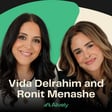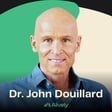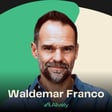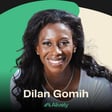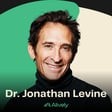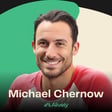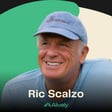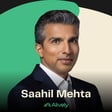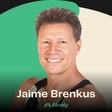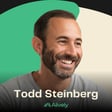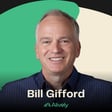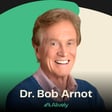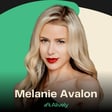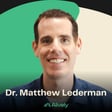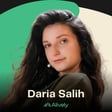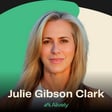
Healthy Food Doesn’t Have to Cost A Lot with Leslie Zinn - E34
Why do we often assume that healthy eating has to drain our wallets? Why do nutritious meal plans always seem to include fancy ingredients that are hard to find?
Many of us get stuck thinking that eating well means spending a lot, but here’s the thing: healthy food doesn’t actually have to cost a lot. In this episode, we’re busting that myth wide open and showing you exactly how to eat nutritiously without breaking the bank. We’ll share the benefits of juicing, how to get enough nutrition as a vegan, and how to do it all on a budget. You’ll also learn about achieving balance across different aspects of life, including exercise, nutrition and social connection – and what discipline has to do with it.
Leslie Zinn, an entrepreneur and devoted health enthusiast, is the CEO of Arden's Garden, a company dedicated to providing accessible, nutritious cold-pressed juices and plant-based foods. With roots tracing back to her mother's passion for wellness since the 1970s, Leslie has championed fresh food availability across underserved areas, embodying her mantra of "good health for all". Her initiatives have seen Arden's Garden flourish, notably opening top-performing stores in 'food deserts' and aligning with community needs, demonstrating the impactful synergy between purpose-driven business and societal benefit. Advocating for a balanced life encompassing fitness, nutrition, and community, Leslie is a formidable figure in the health and wellness industry, inspiring through both her personal journey and business success.
“When you get away from your parent, then you go for maybe not so healthy choices, but it definitely became part of my DNA.” - Leslie Zinn
In this episode you will learn:
- Leslie's personal definition of living her best life, emphasising balance across various aspects such as exercise, nutrition, and social connections.
- The origins and mission of Arden’s Garden, highlighting affordable access to fresh, healthy juices and plant-based foods in underserved areas.
- Insights into Leslie’s vegan lifestyle and nutritional practices, including her daily intake of a cruciferous smoothie for optimal health.
- The importance of physical activity and community connections in Leslie’s daily routine, drawing from her background in gymnastics and recovery communities.
- Leslie’s strategies for maintaining a positive mindset through gratitude and intentionality, with practical tips on making others' days better.
- The nuances of sleep and recovery in Leslie’s health routine, including the challenges she faces and how she approaches improving her sleep quality.
Resources
- Connect with Leslie on Instagram: https://www.instagram.com/ardensgardenatl/
- Shop all the products Leslie mentions in this episode: https://alively.com/products/leslie-zinn
This podcast was produced by the team at Zapods Podcast Agency:
https://www.zapods.com
Find the products, practices, and routines discussed on the Alively website:
https://alively.com/

